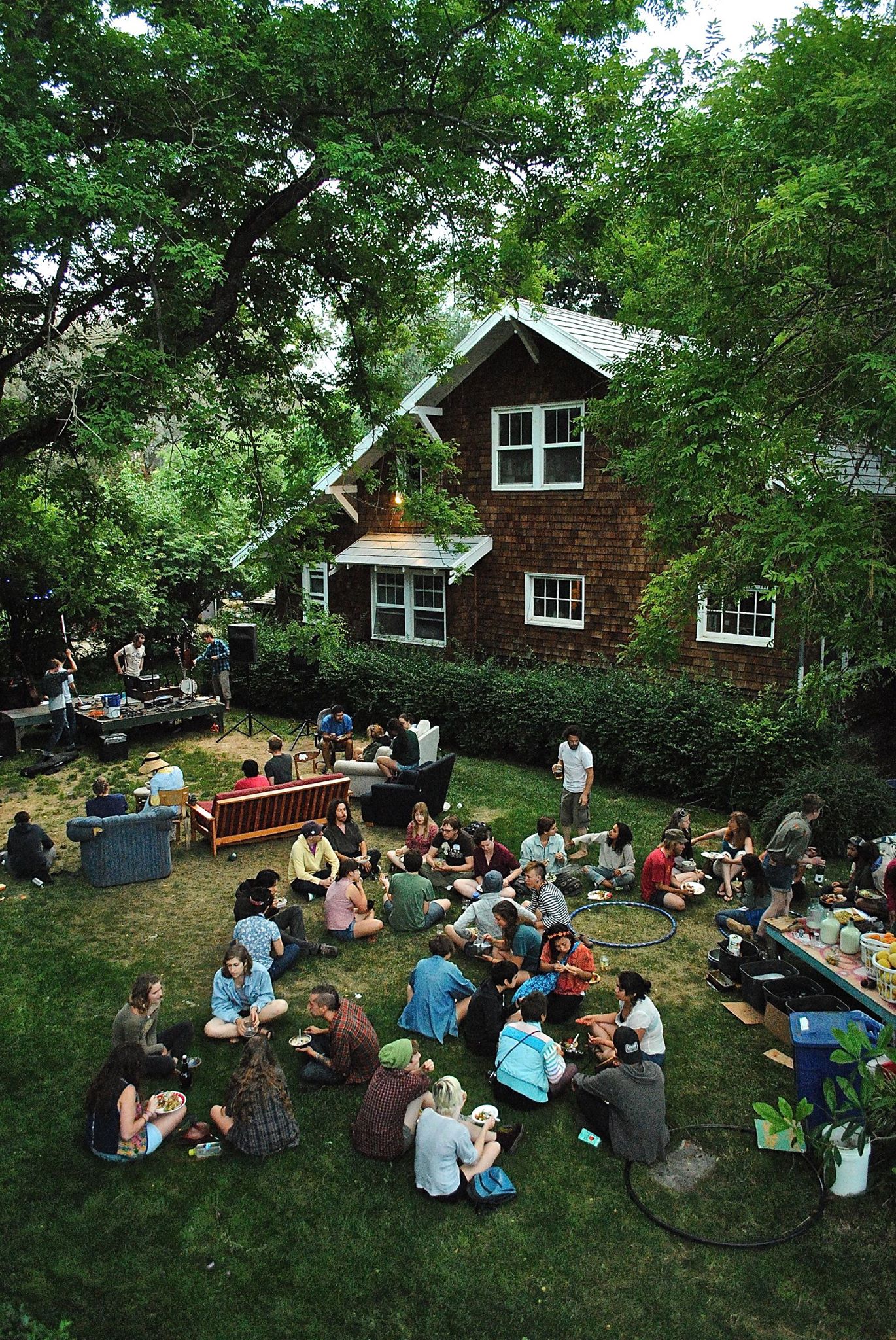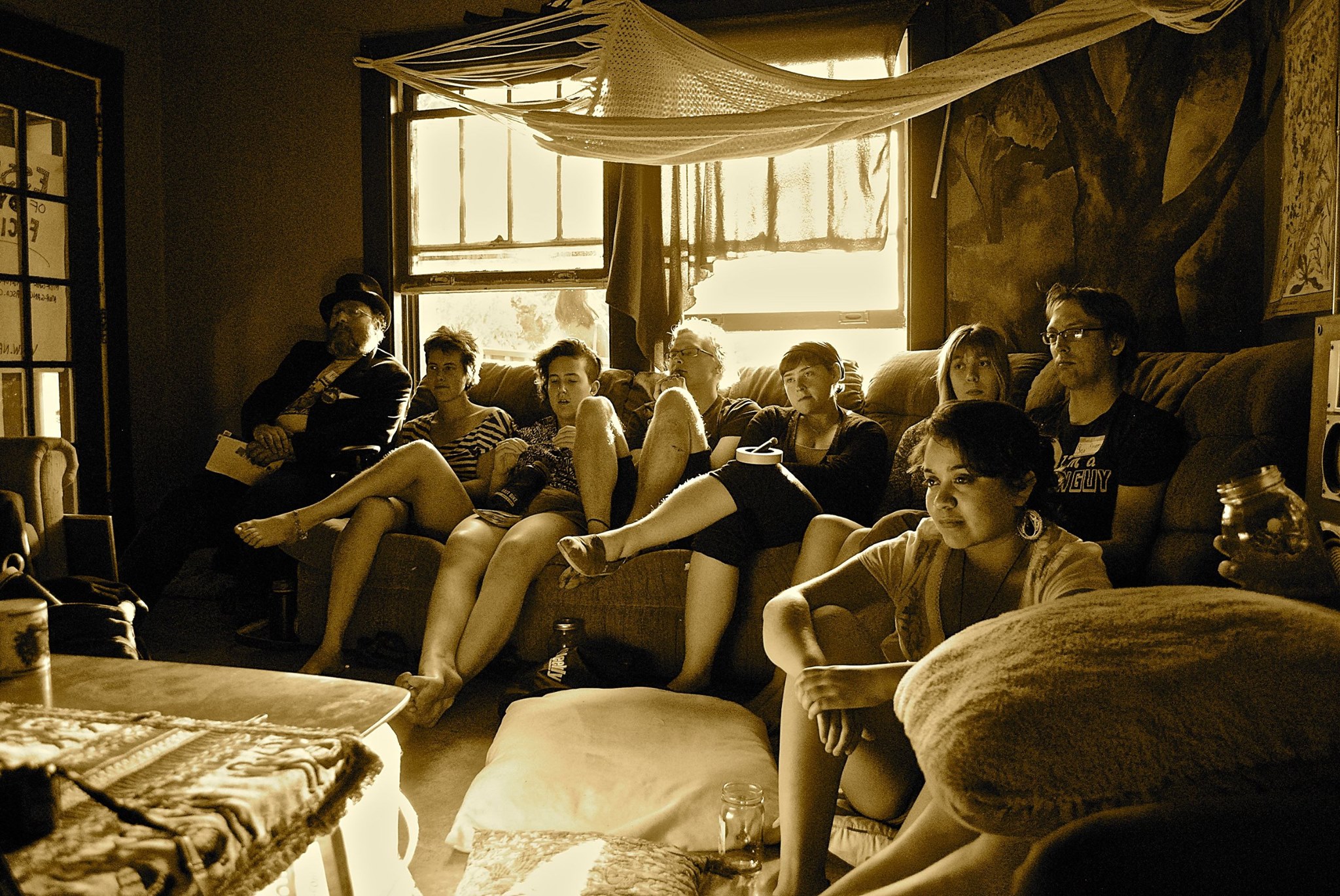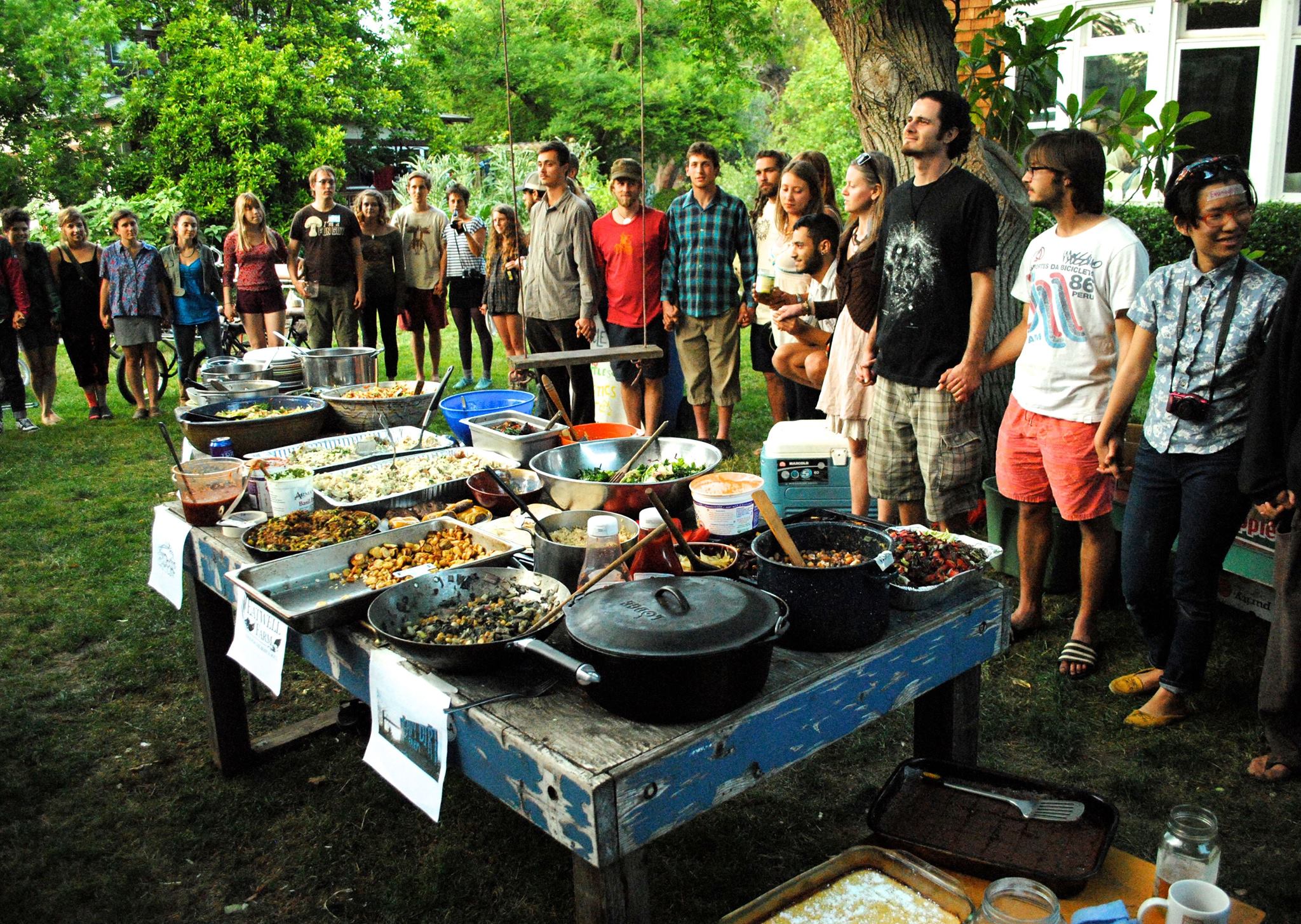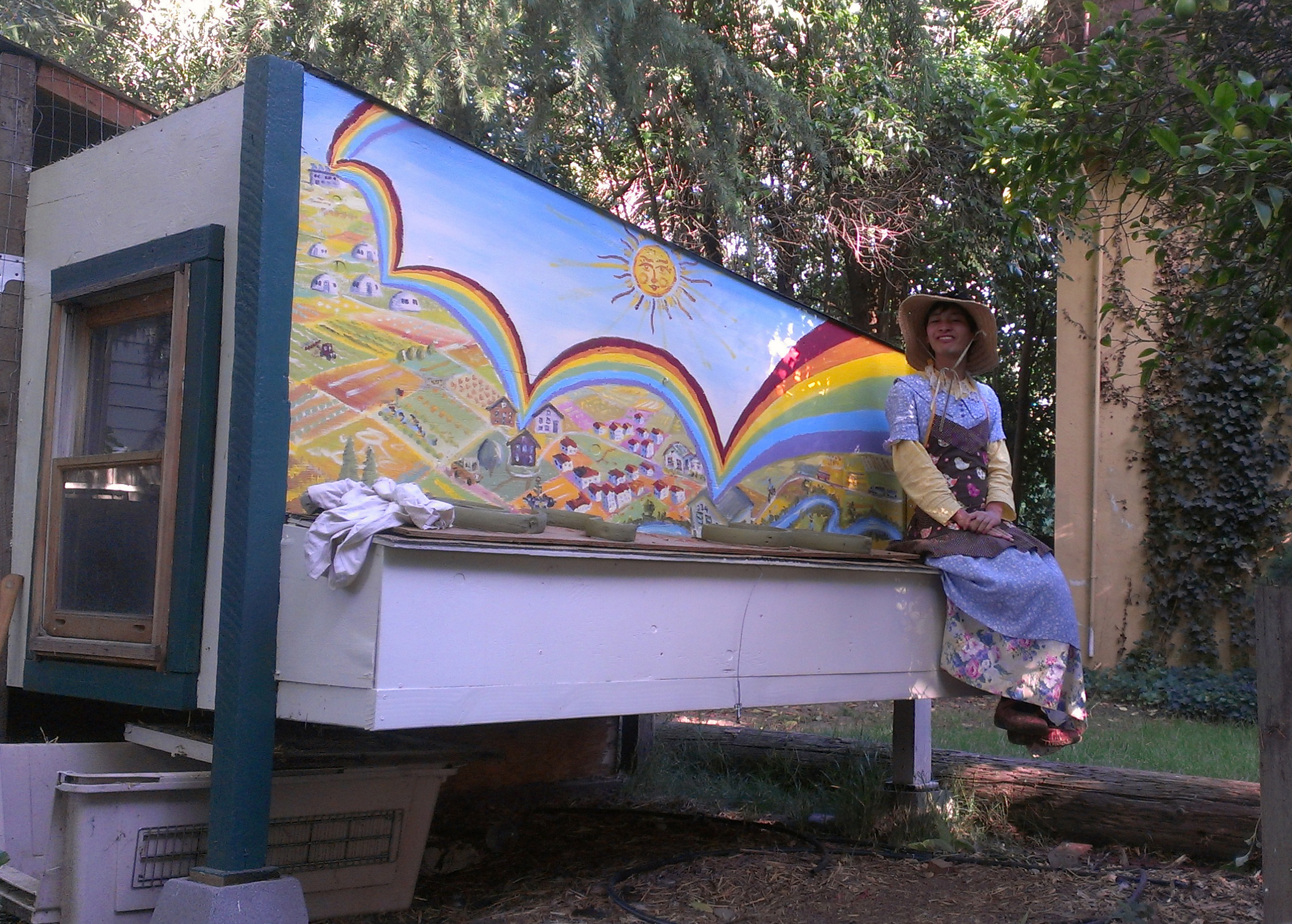The Sixth Cooperative Principle states: "Cooperatives serve their members most effectively and strengthen the cooperative movement by working together through local, regional, national, and international structures."

It’s difficult to even scratch the surface of the impact that this experience had on the individuals who participated, but here’s the most powerful take-away for my community: Check your privilege. Every co-oper has heard someone mutter that prickly phrase under their breath in a meeting, or when a professor unknowingly makes a patriarchal or racist comment in a lecture you paid a hundred dollars to attend. But what does that phrase really mean? Earlier this year, our community in Davis has had the great privilege of NASCO staff member Morgan Crawford and NASCO consultant Remy Corso supporting us in facilitating a preliminary discussion of the concept of privilege, how it relates to social power, and how we can strive to create spaces that are safer for people of all identities, no matter how privileged or marginalized they may be.
This workshop sparked all sorts of positive community discussions and led us to form subcommittees of individuals interested in continuing inter- and intra-community dialogue on power and privilege. That’s exactly what Vivian Onuoha and Layla Oghabian, NASCO Board members and former Berkeley Student Cooperative members, brought to the table in their well-attended, thought-provoking WestCo workshop titled “Introduction to Power, Privilege, and Oppression.” It was clear from the conversations I heard at mealtimes during and after the event that this was one of the most powerful topics of discussion that participants connected to. I believe that individuals empowering themselves with knowledge on how we interact socially in community is one of the most beneficial ways for an individual to start climbing the ladder of goals that Principle Six outlines for us. In planning WestCo, we didn’t intend for its structure or function to follow this principle so beautifully (in fact, we didn’t even discuss it at all); it simply emerged organically as a result of all the talented people who contributed to the space.


What’s one of best ways to break ice and get a bunch of people who have never met each other to connect? You guessed it: food. Not only did we source all of our food from within a twenty mile radius of Davis, it all came from farmers who were totally stoked about the event and wanted to donate their high quality organic produce for free, or at an extremely reduced rate. Talk about spreading the cooperative spirit to those outside the immediate co-op community and having it reciprocated in a major way - Woohoo!
One of the many funny situations we encountered while planning WestCo was that we had absolutely no idea how many people were going to show up. Sure, you can create an online sign-up system to register and pay, but good luck getting a bunch of anti-establishment, free-gan co-opers to conform. Surprisingly, it worked pretty well. That said, on Friday night at the time we intended to serve dinner the crowd looked a bit thin, but we continued the evening on a strict "co-op time" schedule: at least an hour behind the original time communicated. Sure enough, participants from all over the West coast trickled in, grabbed a plate, and began learning that were not all that different from one another, us co-opers. The sharing between communities from far and wide surrounding meal manifestation was truly a sight to be seen. As we chopped fifty pounds of onions our friends had harvested just that morning, we got a chance to see what food culture and co-op culture in general is like in our respective areas.
Another theme that members of communities from all over the nation, and likely the world, can relate to is the relationship between alternative communities and law enforcement. We are still healing from the wounds incurred on November 18, 2011, when a group of peaceful protesters (mostly Davis co-op community members) were brutally pepper-sprayed in their faces at point-blank range. The realization that most of us don’t know what our rights are or how to invoke them in a situation where police are acting inappropriately can be scary. Thankfully, Olivia Turnross, Jessica Samuel, Josh Wizman, and Kase Wheatly of Cornucopia Corner, the Agrarian Effort, and the Domes recognized the need for this type of education and provided an excellent “know your rights” training specifically geared towards political activism, direct action, and protest situations. Living in inclusive communities where we advocate for minorities, people of color, and those of marginalized identities automatically puts us at risk for being profiled by police and unfortunately makes our community members statistically more likely to experience unwarranted police brutality. It was encouraging to see our different communities come together to share knowledge about what we can do to protect and educate ourselves in the face of a corrupt and ineffective law enforcement system.
 Putting our best effort and intention into continuously monitoring and changing the ways in which we live can be disheartening at times and make us feel alone in our fight against the mainstream. It is the gathering together of like-minded people and the strengthening of our common bonds that removes these feelings of isolation and reminds us that it is worth all the work we put in. Coming together, celebrating, and reminding each other that we are doing truly noble work is essential to our functioning, our spiritual health. We must also remind ourselves that we represent only a tiny fraction of people who are living in intentional community all over the world. I write this as I am overlooking the streets of Madrid, feeling safe and completely at home in a beautiful, inclusive, queer-friendly, radical feminist artist collective whose members are fighting for the same things that we are. Our alternative communities serve as educational hubs and safe(r) spaces, setting examples for a standard of living and a tolerant culture that we believe everyone should be entitled to, worldwide. After WestCo 2014, I hope each of you feels encouraged and empowered to make positive changes in yourself, your home, your local community, your national community, and your world.
Putting our best effort and intention into continuously monitoring and changing the ways in which we live can be disheartening at times and make us feel alone in our fight against the mainstream. It is the gathering together of like-minded people and the strengthening of our common bonds that removes these feelings of isolation and reminds us that it is worth all the work we put in. Coming together, celebrating, and reminding each other that we are doing truly noble work is essential to our functioning, our spiritual health. We must also remind ourselves that we represent only a tiny fraction of people who are living in intentional community all over the world. I write this as I am overlooking the streets of Madrid, feeling safe and completely at home in a beautiful, inclusive, queer-friendly, radical feminist artist collective whose members are fighting for the same things that we are. Our alternative communities serve as educational hubs and safe(r) spaces, setting examples for a standard of living and a tolerant culture that we believe everyone should be entitled to, worldwide. After WestCo 2014, I hope each of you feels encouraged and empowered to make positive changes in yourself, your home, your local community, your national community, and your world.
Devin “Devo” Gabhart is a member of Sunwise Co-op and the Solar Community Housing Association (SCHA) in Davis, CA. Photos 1, 2, and 3 in this article were provided by Devo; photo 4 was provided by Alfred Twu.
